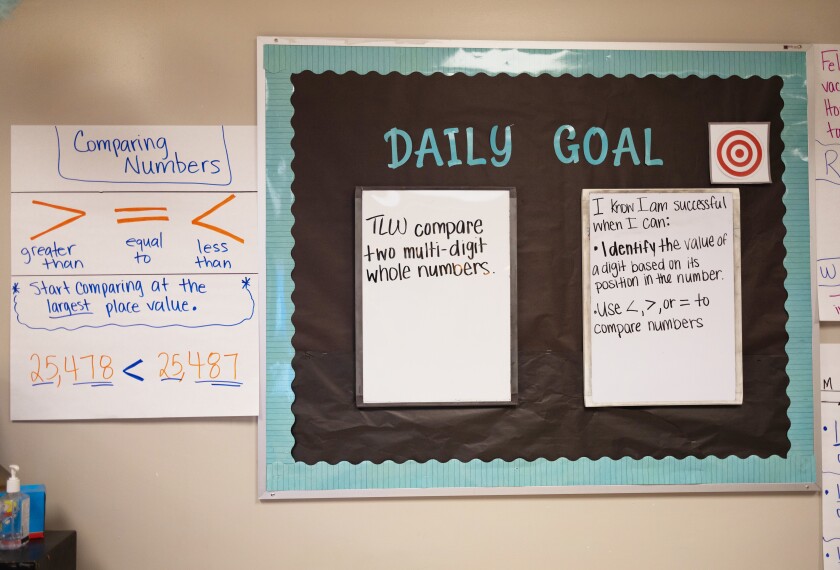Math often can feel a little abstract to students, but teachers who gesture as they explain equations can make them more concrete for their classes, according to a study published online last month in the journal Child Development.
Psychologists from the University of Iowa, in Iowa City, and Michigan State University, in East Lansing, taught 184 2nd, 3rd, and 4th graders a lesson about mathematical equivalence, a foundational concept for algebra.
Half the students saw a video in which a teacher explained the lesson, giving an example problem such as “6+3+7=__+7.” The other students saw a video of the same lesson, but the teacher added hand gestures to emphasize the different sides of the equation.
Students who had the lesson including hand gestures performed better than the other group on a test given immediately afterward. A day later, the same group improved on its previous performance, while the other students did not.




